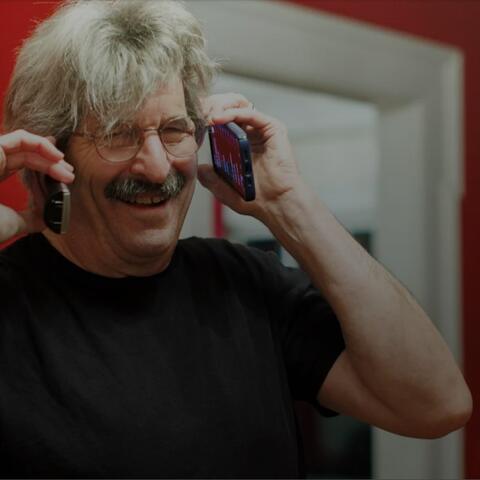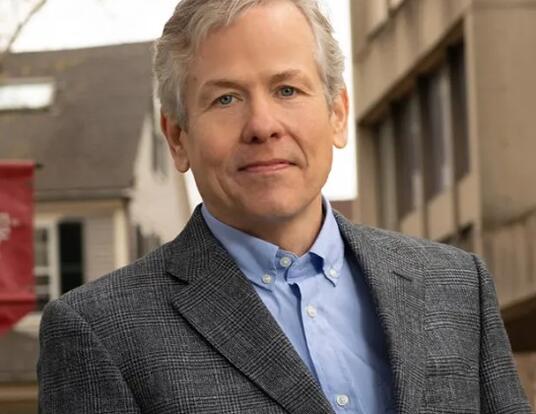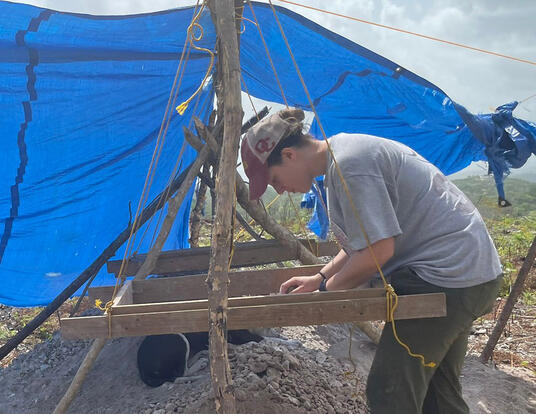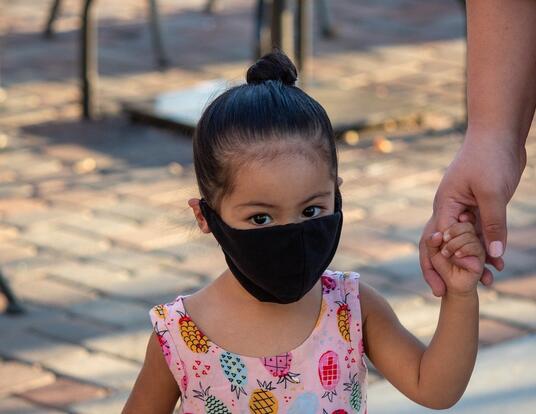Getting the Balance Right
Head of HUHS says that simple precautions can keep Harvard learning—and healthy
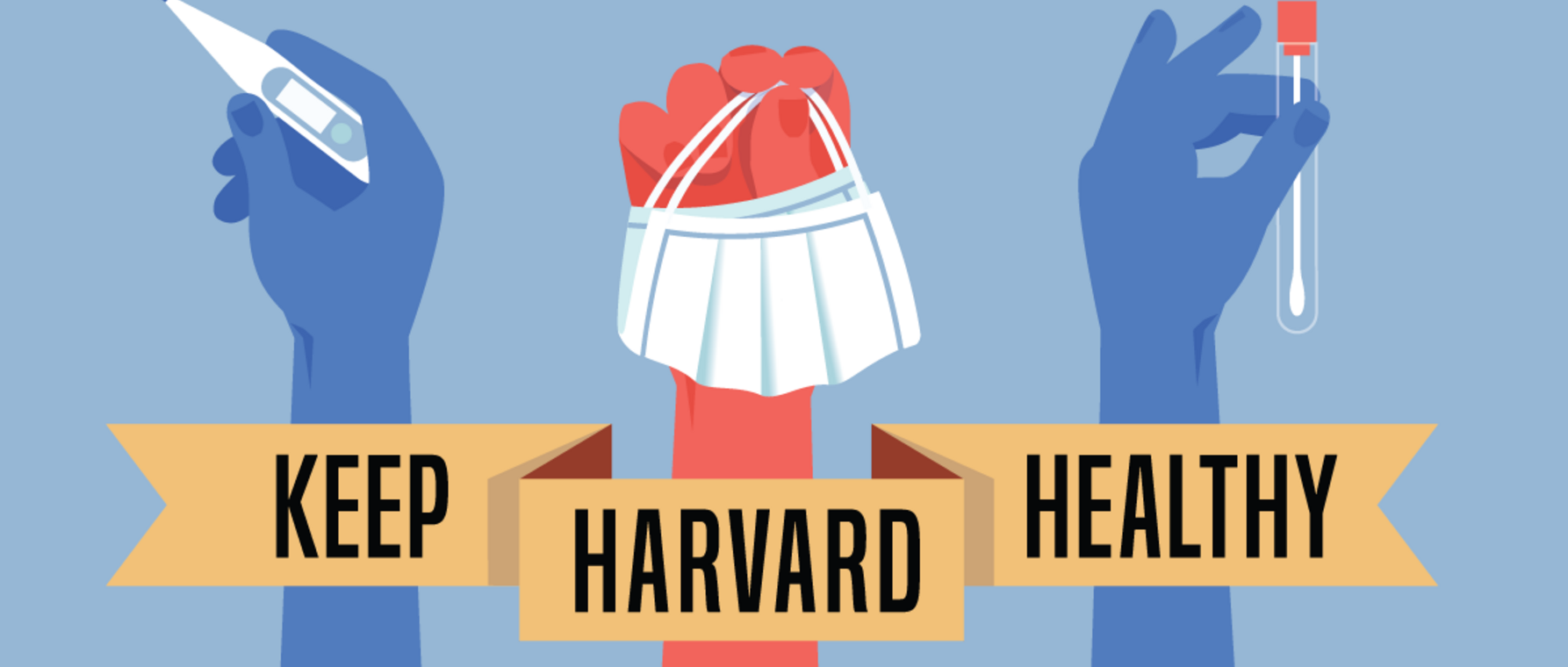
It’s no surprise that Harvard has been good at responding quickly to changing developments in the COVID-19 pandemic. With institutions like Harvard Medical School, the Harvard T.H. Chan School of Public Health, and Harvard’s Faculty of Arts and Sciences, the University can draw on an extraordinary depth and range of expertise in medicine and infectious disease. But there’s another reason why Harvard’s fared so well: the work of Harvard University Health Services (HUHS).
“We’re a multispecialty healthcare practice that’s been in existence for over 100 years now,” says HUHS Director Dr. Giang T. Nguyen. “During that time, we’ve dealt with infectious disease outbreaks including meningitis, mumps, and measles. We draw on that experience—as well as the expertise of the Harvard community and of state public health officials with whom we stay in close contact—to stay out in front of developments in the pandemic.”
As our knowledge of COVID—and the virus itself—continues to evolve, Nguyen is leading HUHS’s effort to keep Harvard healthy. He acknowledges the uncertainty and anxiety that many may feel as they return to campus this fall, but says that the University can balance safety with the need to learn and work together by continuing to implement some simple public health measures.
A Conservative Approach
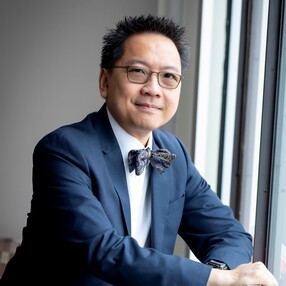
Nguyen says that, even as the delta variant surges, Harvard remains a safe space. One of the reasons is that the School never relaxed its requirement that those on campus wear masks while indoors.
“It’s harder to relax restrictions and then resume them than it is to simply continue,” he explains. “Harvard has been very conservative in its approach to the virus, which has helped it preserve the health and safety of its community.”
For that reason—and because of the virus’s ability to mutate—Nguyen says it’s unlikely that Harvard will relax any of its virus mitigation measures soon.
“We have seen infections among vaccinated people,” he says. “These tend not to be severe, but it’s always better not to get infected at all.”
At the same time, Harvard has to function. Nguyen says that he and his colleagues strive to strike a balance between safeguarding the health of the community and enabling faculty and students to research, teach, and learn together effectively. Frequent testing is key to making both health and education possible.
“It’s a tremendous advantage to be able to have widespread COVID testing here at Harvard,” he says. “To put it in context, many local hospitals don’t even test their staff regularly. At Harvard, we test our community frequently, and we’re often able to quarantine and isolate people even before they develop symptoms.”
Vaccinations, Masks, and Hygiene
Outside of testing, what can members of the Harvard community do to stay healthy and make sure their friends and colleagues do the same? Dr. Nguyen has three recommendations:
- Get vaccinated: To those who remain unvaccinated, Nguyen says simply “Now is the time.” The Pfizer, Moderna, and Johnson & Johnson vaccines have all been proven safe and effective and the Pfizer vaccine now has full FDA approval. Moreover, there are very few medical conditions that preclude vaccination. Those who do have legitimate health concerns with one vaccine can usually choose another that’s safe.
- Mask up: Nguyen urges faculty, students, and staff to keep their masks on at all times. While the vaccines are effective and the chances are slim that those who are inoculated will get ill—particularly if gathered outside with others who are vaccinated and asymptomatic—the risk is not zero. If it’s necessary to unmask—usually to eat or drink—it’s best to do so when outdoors or at a distance. Finally, Nguyen says it’s important to use a mask that fits well, with a good seal around the edges and multiple layers. Because the delta variant is so contagious, the edges of a mask must fit snugly against the wearer's face.
- Clean up: Nguyen’s advice here is straightforward: Wash hands often with soap and water for at least 20 seconds. It’s especially important to wash before and after contact with objects such as door handles that many others have touched.
What about travel? Nguyen says that travelers simply have to be careful everywhere they go. He recommends wearing a mask and eating before going to a crowded airport so there will be no need to remove it. And while the air quality on planes is outstanding now because of new filtration systems, they’re no protection from the passenger sitting next to you. Best to mask up.
“Clusters of infection tend to be on long-distance flights because people remove their masks to eat and to sleep,” he says. “People should consider double-masking and avoid eating on the flight.”
Nguyen thinks the virus will be with us for a long time, so we need to learn to live with it. Although the risk will never be zero, the goal is to keep it as low as possible.
“I actually take the bus to work every morning,” he says, “but I feel very comfortable doing it because I’m vaccinated, I test regularly, I wear a mask, and I wash up.”
Nguyen has one last piece of advice to the Harvard community, and while it won’t keep COVID away, it may be the most important suggestion of all.
“Be kind to one another,” he says. “If someone isn’t behaving in a way you think they ought to, it’s likely out of fear, misunderstanding, or some other circumstance, not malice.”
Get the Latest Updates
Join Our Newsletter
Subscribe to Colloquy Podcast
Simplecast


